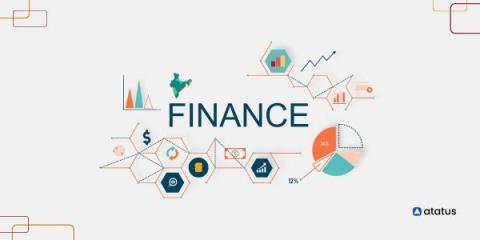Operations | Monitoring | ITSM | DevOps | Cloud
Finance
Digital Disruption in Financial Services: Getting Ahead with Automation
The state of financial services today spotlights core banking digitization and the bigger-than-life disruption it’s causing in the industry. It makes sense that going to the bank sounds like an errand people no longer need to run. Even though 77 percent of banking consumers still use traditional banks in some capacity, 43 percent keep their funds elsewhere, and 61 percent will likely switch to a digital-only provider, Galileo Financial Technologies found.
Top tips: Four compelling use cases for AI in FinTech
Top tips is a weekly column where we highlight what’s trending in the tech world today and list out ways to explore these trends. This week, we’re examining four use cases for AI in the ever-growing FinTech sector. The FinTech sector has transformed the discussion around the financial services industry from top to bottom.
Digital Transformation Is Changing the Mortgage Industry - Here's How
What Should You Compare When Selecting Loans?
Top 5 Financial Services Trends IT Leaders Must Know to Accelerate Digital Transformation
We could probably sum up the direction the financial services industry is headed in just two words: digital transformation. It’s the buzzy, all-encompassing focus and end goal of financial services organizations near and far, and it’s the big reason why many organizations are thinking about process automation with a greater sense of urgency.
Enhance Your Business With These Easy, Yet Effective Methods
Selecting Observability and Security Solutions in Compliance with RBI: Fintech Challenges
Fintech, an abbreviation for financial technology, encompasses many firms and technologies that employ innovation and tech to enhance and automate financial services and operations. Their goal is to enhance the efficiency, accessibility, and user-friendliness of financial services. Fintech entities span numerous sectors within the financial industry, such as online payments, lending, digital banking, investing, insurance, and more, all aimed at streamlining financial processes.
How Technology Revolutionizes Postage Expense Management in Business
As APIs grow in strategic importance to banks, focus turns to modern API monitoring tools
Banks are putting a fresh set of eyes on how they are using APIs to drive better business outcomes and deliver more value to their customers. This is a relatively new departure toward adopting digital transformation of key operations. Financial organizations are traditionally known for favoring conservative business models that often resist modernizing complex legacy systems or rapid change in product and service offerings. This has been changing rapidly as APIs become more prevalent.










